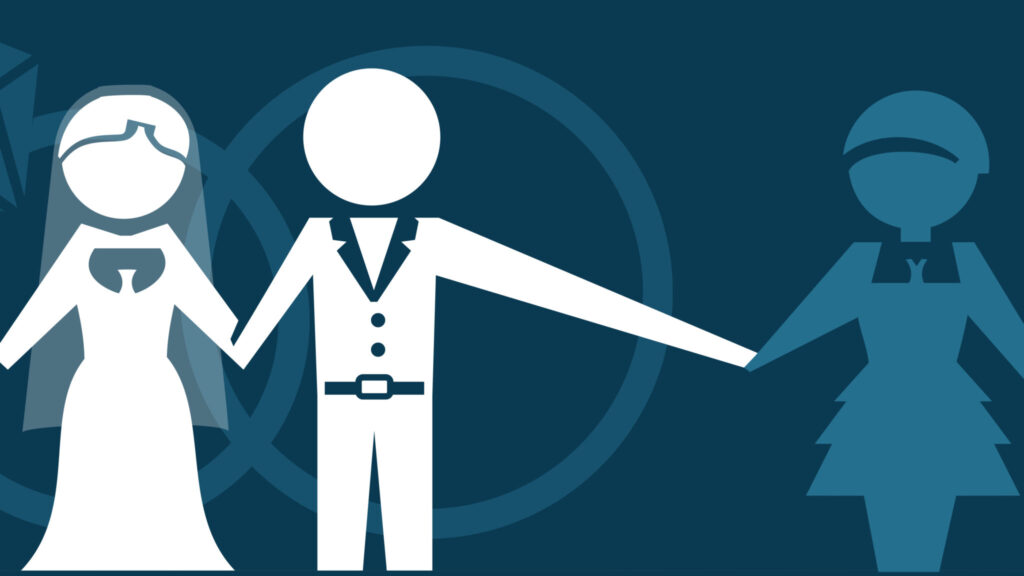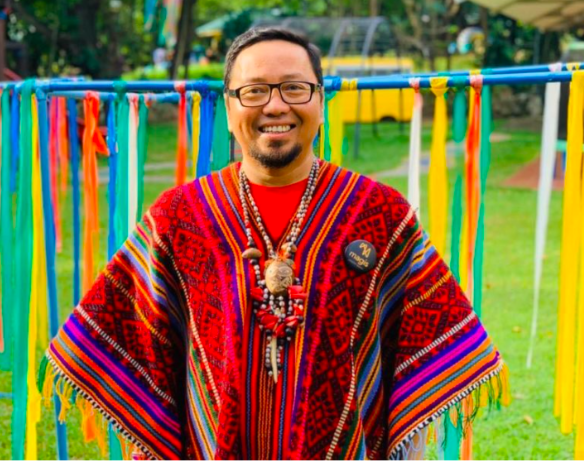A priest’s take on why adultery happens: It’s a symptom of a bigger problem
“I am not saying that infidelity or adultery is good. I’m not saying that it is okay. Adultery hurts. Infidelity is painful; it hurts. What I’m saying is to look at it more as a symptom of a much deeper problem in our society today.”

Image source: https://bit.ly/36SiIRX
CEBU CITY, Philippines — Does infidelity really just happen?
For Fr. Loreto Jaque, a Catholic missionary, who believes in Archetypal psychology and provides counseling and expressive therapy, adultery does not just happen by chance.
Adultery, instead, for him, is a “symptom” of a much bigger problem in society that needs addressing.
And that what is needed is to have a regular safe space where this “symptom” can be talked about with compassion, mercy, and love — an option away from a conversation on the matter that tends to be “judgmental and short-sighted.”
“I am not saying that infidelity or adultery is good. I’m not saying that it is okay. Adultery hurts. Infidelity is painful, it hurts. What I’m saying is to look at it more as a symptom of a much deeper problem in our society today,” Fr. Jaque said.

Fr. Loreto Jaque teaches Creative Dreamwork at the Pastoral Formation Year Seminary inside the Archbishop’s Residence Compound in Cebu City. | Contributed photo
From the perspective of the Catholic Church as cited in the Catechism of the Catholic Church 2380, adultery refers to marital infidelity as “when two partners, of whom at least one is married to another party, have sexual relations —even transient ones—they commit adultery.”
READ: Adultery raps lodged vs 2 cops
The bigger problem
What is that “much bigger problem” that adultery is a symptom of? Or simply, why do people cheat?
Instead of delving into the mysterious core of the human heart to search for an answer as to why people become unfaithful to their partners, Fr. Jaque offers another point of view on the matter.
He sees adultery as the downside of people being “enslaved by speed”– from fast food, fast internet, fast life, and even fast decisions on committing and getting married.
No shortcut to love, commitment
Jaque emphasized the importance of the church in preparing people emotionally and spiritually for married life as it is equally important for them to be financially, phychologically and physically prepared to go into such a commitment.
“We go to a church; we are given a list of requirements from the government or the church, [attend] a seminar or two and then when you are done, you are scheduled for a marriage interview, after the marriage interview, you are given a date for your wedding,” he said.
“Oftentimes, I believe that we prepare people for the wedding, but not really for married life. We need to prepare people for love,” he said.
READ: ‘Cost’ making couples forgo church wedding – poll
“Husbands and wives or boyfriends and girlfriends, they come from different backgrounds. The sacrament of [marriage] is not magic that once gikasal ka, heal na tanang emotional wounds nimo (you are married, all your emotional wounds are healed),” he further said.
“We come from different family backgrounds, and people should understand that all of us whether we have just started dating someone or have been married for 40 or 50 years, will have different views about intimacy, togetherness, how we deal with conflict, our attitude toward sex, communication, dialogue, expectations from the relationships,” Fr. Jaque said.
READ: Marital infidelity is punishable under the law – SC
Solitude and love
He said that loving would not necessarily mean being together always.
Just as how, it is a risk to propose or decide on marriage only because one misses his or her partner, and not looking into each other’s emotional needs.
Fr. Jaque said, in this situation, either of the couple might be prone to commit infidelity for various possible reasons, such as different attachment styles and expectations from the relationship, which were not addressed personally by the couple before marrying each other.
READ: Caught in the act: 2 face adultery raps in Talisay City
Afraid to love, commitment
“If you are afraid to be alone, you cannot love,” he said.
He cited a research study from the University of Toronto stating that people who were afraid to love would likely have a failed marriage.
“Ngano man? Kay gidali-dali naman nimo, mahadlok ka mag-inusara (Why? Because you hurriedly did it, you are afraid to be alone)…heal yourself [first] from all these emotional traumas and wounds before going into a relationship, before you commit” he said.
“People commit extra-marital affairs not just for sex, some find their identities. Nagtuo ta nga kining tawhana, makahatag nato og tubag kung kinsa ta (We believe that this person can give us an answer on who we are). [And then] kay dili man, mangita ta’g lain (because it is not so, we look for others),” Fr. Jaque added.
READ: Bill adds more grounds for legal separation
How to strengthen marriage
Jaque then emphasized the importance of dialogue or communication in strengthening marriage—even in getting interested in their spouse’s dreams at night.
He then made a point on how non-verbal communication, such as hugging and looking into each other’s eyes intently and sincerely, aids in achieving a healthy marriage.
The post A priest’s take on why adultery happens: It’s a symptom of a bigger problem appeared first on Cebu Daily News.

No comments: